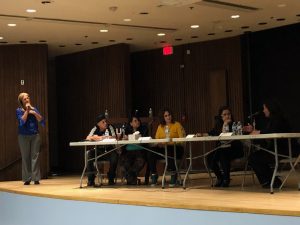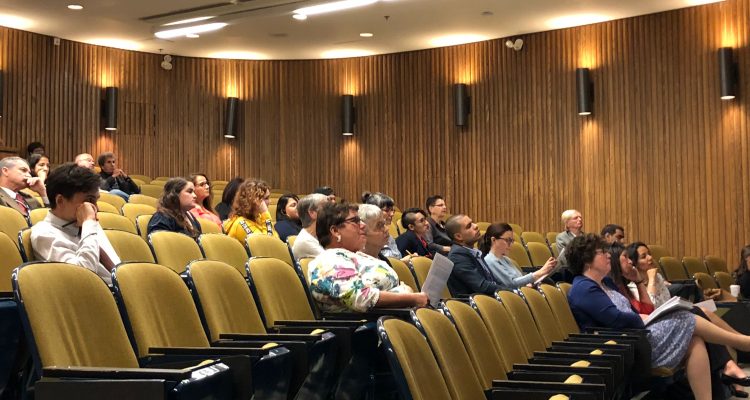By Katherine Sypher
Just days after Hurricane Florence struck the North Carolina coast, UConn Health hosted a community forum in Hartford to mark one year since Hurricane Maria made landfall in Puerto Rico.
The forum held last Thursday highlighted Puerto Rican families who sought refuge in Connecticut after the storm struck the island, causing destruction that still lingers to this day.
Speakers included UConn Health faculty and students, Puerto Rican individuals seeking refuge in Connecticut as well as community members committed to assisting the families displaced in the storm’s aftermath.
The forum addressed the challenges of assisting these families displaced by the hurricane. Many of these families are unsure when or even if they will return to the island.
Hurricane Maria was a category 4 hurricane when it first made landfall in Puerto Rico on September 20, 2017. According to the National Oceanic and Atmospheric Administration, a category 4 hurricane is characterized by top speed winds over 130 miles per hour. Storms like these are capable of causing “catastrophic” damage. Hurricane Maria is estimated to be responsible for the deaths of about 3,000 people, according to a George Washington University Report.

Merelys Torres Garcia, Ashlynn González, Emmanuel Rivera Mulero, Dalianys Mercado Vargas and Bianca Noronas speak on a panel. Photo: Katherine Sypher
Cándida Flores is the CEO of Family Life Education in Hartford. It’s an organization focused on serving women and children, with a strong focus on “self-efficacy and empowerment.” One year on, Flores says the situation in Puerto Rico has improved little.
“For what I’ve seen, it’s too disjointed, too disconnected. I don’t think that the families that came from Puerto Rico have gotten the services that they need. We need to be more coordinated, more organized, and those people who need to be responding to this crisis are coordinating with each other,” Flores said.
According to forum organizer Dr. David Gregorio of UConn Health, Hurricane Maria’s impact on Puerto Rico “didn’t end when the wind stopped blowing.”
In the past year, the island has struggled to restore electricity to all its inhabitants. According to a pamphlet handed out in the forum, many people have sought refuge in the United States, including in the greater Hartford region, because of the lack of suitable housing and necessary public services in Puerto Rico.
Bianca Noroñas was in San Juan, Puerto Rico during the hurricane. She has since relocated to Hartford, where she works as a community health worker. Noroñas still remembers the day the storm hit in vivid detail.
“The day, during the storm, I was with my two-year-old daughter. It was like a nightmare because you feel that you are living in a Hollywood movie. We usually see that kind of movie, like the ‘end of the world’. We feel like the end of the world that day,” Noroñas said.
Flores says that Connecticut residents can do more to help people like Noroñas. Listening to the panelists at this forum is just one small step.
“We need to be more coordinated, we need to be more empathetic. It can happen to us,” Flores said.
The Hartford event was co-sponsored by the UConn Health Department of Community Medicine & Health Care, Family Life Education, the Latino Medical Student Association and the Public Health Student Association.


